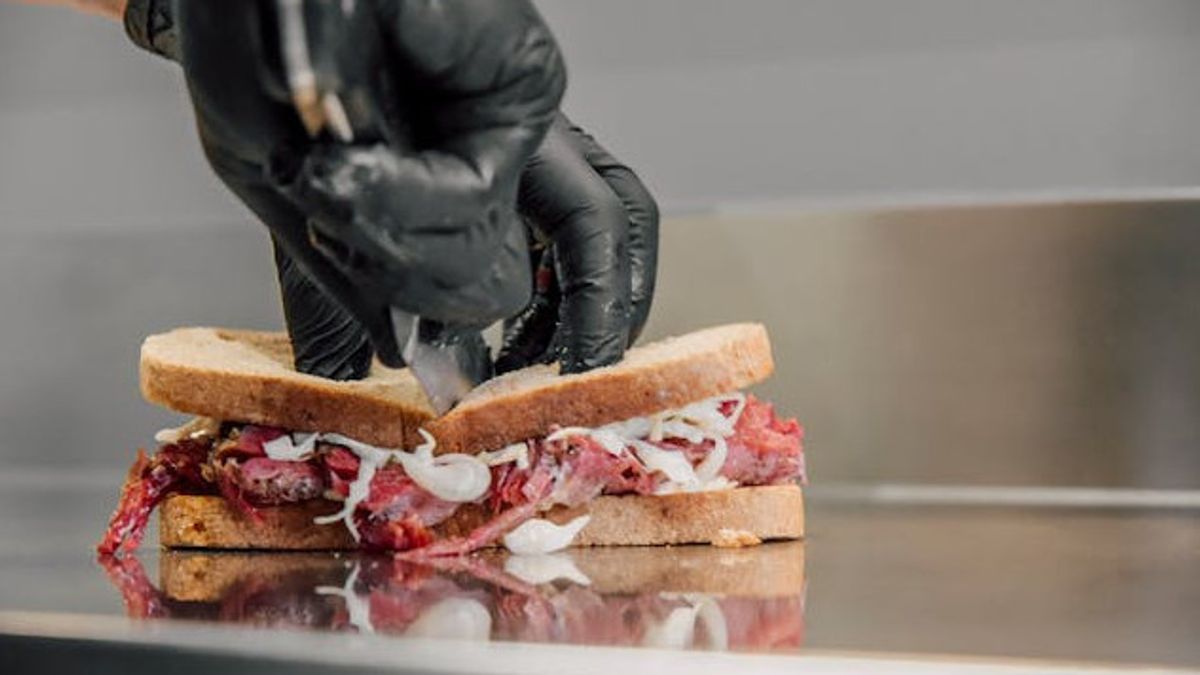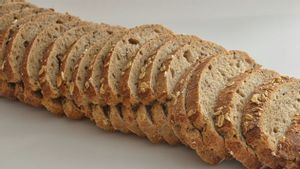JAKARTA - There is no need to doubt that what you eat and drink affects the condition in the stomach, from bloating and nausea to being full and happy. However, food and drink also affect overall gut health, lowering or increasing the risk of digestive disease.
The following six categories of food and drink are some of the known causes, according to WebMD, Wednesday, October 2. You don't have to keep taking it away, but reducing it will be good for the intestines.
Most people depend on some processed foods, such as dried pasta and packaged peanut butter. However, ultra-processed foods tend to contain more additive substances such as dyes, stabilizers, and reflux, as well as more saturated fats and additional sugars.
Research found that ultra-processed foods can actually change gut microbiomes, namely healthy and unhealthy microorganisms balance to worse. An imbalance can make you more vulnerable to problems such as excessive growth of fine gut bacteria (SIBO) and intestinal inflammation (IBD).
Alcohol can damage the intestines. Alcohol can make you feel bloating and is the main trigger for heartburn. Alcohol also damages the stomach layer and can cause gastritis, inflammation and irritation of the stomach that feels like a pain that eats away at you or a sensation of burning in your stomach. Like processed foods, researchers have found that heavy AND routine warrants can experience negative changes to their gut microbiomes.
High fatty foods such as French fries are not good for digestion for several reasons. First, fatty foods slow down digestion, which can cause bloating, digestive disorders, and stomach pain. Fat foods are also associated with fatty pain because they trigger more stomach acid, which can rise to the concavity and cause pain. People with colon irritation syndrome (IBS) find high fatty foods worsen problems such as diarrhea and bloating.
Some sweeteners such as sorbitol and manitolls, used in rubber candy and sugar-free candy can worsen symptoms such as gas and bloating for IBS sufferers. There is also some evidence that artificial sweeteners such as sakarin and sukralosa can change the composition of the gut microbiome to be worse. Research is still unclear and further research is needed, but there is no doubt that this sweetener tends to be found in processed foods, which is not good for the intestines.
SEE ALSO:
Sweet drinks such as soda, tea, and fruit drinks are the number one additional source of sugar in adult and children's diet. A diet that contains a lot of additional sugar from any source, including drinks and desserts, has been proven in research on animals that can damage the protective lining of the intestines and encourage unhealthy bacteria to reproduce. Changing sweet drinks with sugarless drinks is a quick way to reduce sugar intake.
All sausages, sausages, processed meat, and hot dogs are processed meat. Many of them contain high fats, which can worsen symptoms for IBS sufferers and gastroesofageal reflux. Research also shows that people who regularly consume processed meat have a higher risk of developing colorectal cancer.
So, what should be consumed? You can eat plant-based foods. Consuming at least 30 types of plant-based foods a week such as fruits, vegetables, whole grains, and spices have been proven in research to increase the diversity of healthy organisms in the intestines.
In addition, you can also consume probiotic sources. Fermented foods such as yogurt, kefir, miso, and sauerkraut encourage the growth of bacteria in the intestines. Foods with prebiotic sources as well. This food helps feed bacteria both in the intestines and includes onions, wheat, apples, and sweet potatoes. Lastly, foods rich in fiber. Vegetable foods and whole grains are good sources of fiber, such as nuts, wheat, whole grains, red rice, and rasberi.
The English, Chinese, Japanese, Arabic, and French versions are automatically generated by the AI. So there may still be inaccuracies in translating, please always see Indonesian as our main language. (system supported by DigitalSiber.id)


















